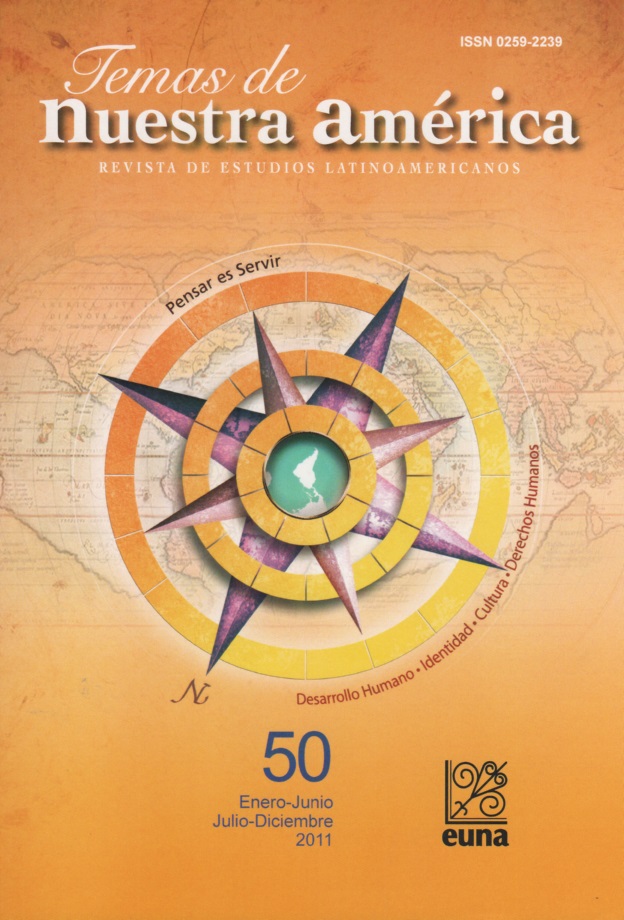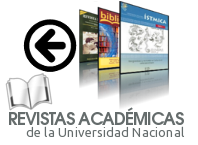Centroamérica emboscada. La situación geoestratégica de la región en el siglo XXI.
Keywords:
Geopolitics, geostrategy, Central America, Latin AmericaAbstract
In order to understand the United States Internationalpolitics towards Latin America, one has tostart from the notions of “The Grand Area”, an ideainitially created at the dawn of the 20th century by UnitedStates and Nazi geopoliticians. Their main elementwill be the notion of the “Vital Space” (Lebensraum) and “Irradiation Area” or “Area of Influence”(Ausstrahlung). Therefore, the UnitedStates, wanting to have absolute controlof the continent, they cannot allow theexistence of elements and processes thatmay escape of their control, since thecontinent works as a platform for theirmilitary incursions, attacks and globalprojections against other powers. Facingan imminent collapse of the hegemony,the United States will search for ways togain absolute control of the entire continentthroughout diverse mechanisms,not only economically speaking butalso political and military. The heaviestpart of the interventionist politics of theUnited States will be fulfilled in the areabetween Mexico, Central America, Colombiaand the Caribbean. This satisfiesthe objective of consolidating a “BufferZone” which controls and represses thesocial movements of the region, and also,allows them to create unstable processesof union and independence which developin South America.References
Álvarez, D. (s. f.). Intereses geo-económicos y recursos naturales. Cuba: AUNA.
Barahona, A. (2004). El proyecto de EE.UU. que determina el contenido del TLC. En Florez-Estrada, M. Hernández (eds.), 2004. TLC con EE.UU.: contribuciones para el debate. ¿Debe Costa Rica aprobarlo? San José: Instituto de Investigaciones Sociales, UCR.
Chomsky, N. (1988). Nuestra pequeña región de por aquí: Política de Seguridad de los EE.UU. Managua: Editorial Nueva Nicaragua.
Gutiérrez, M. Vargas, J. (1986). Costa Rica es el nombre del Juego. Análisis de la crisis de 1984. San José: ICES.
Magdoff, H. (1969). La Era del Imperialismo. Política Económica Internacional de EE.UU. Trad. Arrigorriaga, R. México D. F.: Editorial Nuestro Tiempo.
Petras, J. (2004). Imperio vs Resistencia. La Habana: Casa Editorial Abril.
Ramonet, I. (2006). Nuevo Japón. En Le Monde Diplomatique edición colombiana. Año V, número 51, noviembre del 2006.
Saxe-Fernández, J. (2006). Terror e Imperio. La hegemonía política y económica de EE.UU. México D. F.: Random House Mondadori.
Saxe-Fernández, J. y Petra J. (2001). Globalización, Imperialismo y Clase Social. Buenos Aires: Grupo Editorial Lumen.
Tablada, C. y Hernández, G. (2003). Petróleo, Poder y Civilización. La Habana: Editorial de Ciencias Sociales.
Ulibarri, E. (2004). El TLC y las estrategias regionales. En Florez-Estrada, M.; Hernández (eds.), 2004. TLC con EE.UU.: contribuciones para el debate. ¿Debe Costa Rica aprobarlo? San José: Instituto de Investigaciones Sociales, UCR.
Referencias de Internet
Brooks, D. Bush los vecinos más cercanos deben ser estables, por seguridad de EE.UU. En La Jornada, 17 de marzo de 2006. http://www.jornada.unam.mx/2006/03/17/032n1mun.php.
Campderrich, R. Derecho, política orden internacional en la obra de Carl Schmitt http://www.tesisenxarxa.
net/TESIS_UB/AVAILABLE/TDX- 0731106-103240//RCB_TESIS.pdf
Doctrina de Seguridad Nacional. 2000. http://russiatoday-es.strana.ru/security/ defence/3706.html
Evenett, S. Meier, M. (2006). An Interim Assessment Of The U.S. Trade Policy Of “Competitive Liberalization”.Documento digital descargable en el sitio web http://www.evenett.com/working/EvenettCompetitiveLiberalization13Sept2005. pdf
Mastel, G. (s. f.). Project Paper a US-Taiwan Free Trade Agreement. www.newamericancentury. org
Johnson, C. El imperio Mundial: 737 bases militares estadounidenses. www.rebelion.org
Moreno, R. Transnacionales, TLC y Seguridad Nacional http://www.bilaterals.org/article.php3?id_article=1627&-
var_recherche=seguridad%2Besencial&lang=es
Motto, C. Ejercicios militares de EUA en República Dominicana. Un eslabón más de la cadena imperial. www.geopolitica.ws
Rumsfeld aplaude reformas democráticas en américa latina. http://usinfo.state.gov/esp/Archive/2005/May/06- 578816.html
Downloads
How to Cite
Issue
Section
License
Esta obra de Revista Temas de Nuestra América está bajo una Licencia Creative Commons Atribución-NoComercial-SinDerivar 4.0 Internacional.
Cualquier permiso que trascienda dicha licencia, debe solicitarse por escrito a la persona directora de la Revista










